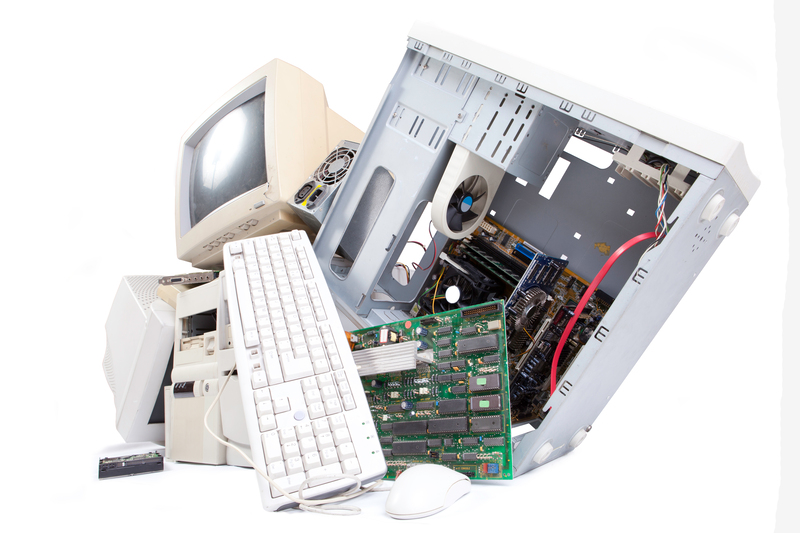As the world continues to grapple with the effects of environmental degradation, one simple yet impactful solution stands out: metal recycling. This practice not only fosters a healthier ecosystem but also paves the path toward sustainable growth. In this article, we will explore the multitude of benefits associated with metal recycling and why embracing it is crucial for a cleaner tomorrow.
The Environmental Importance of Metal Recycling
Metal recycling plays a pivotal role in conserving natural resources and reducing the ecological footprint. Let's delve into the various reasons this practice is indispensable for the environment.
Conservation of Natural Resources
One of the most significant advantages of metal recycling is the conservation of natural resources. Extracting raw materials from the earth often involves extensive mining, which can lead to habitat destruction and soil erosion. By recycling metals, we reduce the need for such environmentally harmful practices.
Energy Savings
Metal recycling is a highly energy-efficient process. According to studies, recycling aluminum saves up to 95% of the energy required to produce new aluminum from bauxite ore. Similarly, recycling steel saves approximately 60% of the energy compared to using virgin materials. These energy savings not only reduce greenhouse gas emissions but also lower the overall carbon footprint of metal production.
Reduction of Landfill Waste
Recycling metals significantly reduces the waste sent to landfills. Since metals do not decompose as quickly as other materials, they can take up valuable space and contribute to pollution for many years. By recycling, we minimize landfill waste and make room for biodegradable waste, which can break down more efficiently.

The Economic Benefits of Metal Recycling
Aside from its environmental advantages, metal recycling also offers various economic benefits. These include job creation, cost savings, and a more stable global market for raw materials.
Job Creation
Metal recycling is a labor-intensive industry, requiring workers for collection, sorting, processing, and distribution. According to the Institute of Scrap Recycling Industries, the recycling industry supports over 1.5 million jobs in the United States alone. This sector fosters job growth and provides sustainable employment opportunities globally.
Cost Savings
Recycling metals is a cost-effective alternative to mining and processing new materials. The reduced energy consumption translates into lower production costs for manufacturers. This cost efficiency often reaches consumers, leading to more affordable products on the market.
Stability in Raw Material Supply
The availability of recycled metals contributes to a more stable supply chain for raw materials. This stability can help cushion the market from the volatility of commodity prices, protecting businesses and consumers from price spikes.
The Role of Metal Recycling in Sustainability
Embracing metal recycling is integral to achieving a sustainable future. This practice aligns with several key principles of sustainability, ensuring that future generations inherit a healthier, more efficient world.
Evolving Consumer Products
As technology advances, so does the demand for electronic devices that require a range of metals, including precious ones like gold and silver. By recycling e-waste, we can recover these valuable metals, thereby reducing the need to mine more and alleviating the pressure on Earth's finite resources.
Supporting the Circular Economy
Metal recycling aligns with the principles of a circular economy, where resources are reused and circulated within the economy for as long as possible. This differs from the traditional linear economy, which relies on the extraction of raw materials, production, and eventual disposal. A circular economy promotes sustainability by minimizing waste and maximizing resource use.
Corporate Social Responsibility
Companies that embrace metal recycling practices often enhance their corporate social responsibility (CSR) profiles. Many businesses are recognizing the importance of sustainability in their operations and supply chains. By emphasizing recycling, companies can improve their public image, boost customer trust, and potentially increase profitability.

Challenges and Solutions in Metal Recycling
While metal recycling offers numerous benefits, it also presents challenges that need addressing to optimize results.
Collection and Sorting
Proper collection and sorting of recyclable metals can be challenging due to contamination and mixed materials. Investment in advanced sorting technologies and consumer education can overcome these challenges by ensuring that more recyclable metals are correctly processed.
Capacity and Infrastructure
In many regions, the lack of sufficient recycling infrastructure limits the efficiency of metal recycling. To address this, partnerships between governments, manufacturers, and recycling firms are essential to building the necessary infrastructures and ensuring that collected metals are processed effectively.
Public Awareness
Encouraging more individuals and businesses to recycle metals requires increased public awareness. Community initiatives, educational programs, and incentives can inspire action and foster a recycling culture that prioritizes environmental conservation.
Conclusion
Metal recycling isn't just an option; it is a necessity for a cleaner, more sustainable tomorrow. By embracing this practice, we can significantly reduce our ecological footprint, save energy, and contribute to a healthier economy. The journey towards sustainable recycling starts with informed decisions and collective action from individuals, businesses, and communities worldwide. The future is in our hands--let's make it green and sustainable.